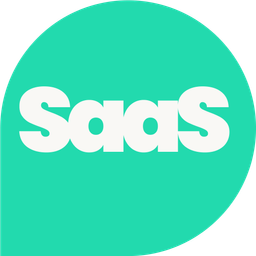We know you’re tired of hearing this, but the SaaS landscape is competitive. So as a fledgling startup looking to blaze a trail through the SaaS landscape, how do you get competitive – and more importantly – how do you stay competitive?
You need a great idea, sure, but whether an idea is great or not is defined by whether or not there is genuine hunger for it in the market.
This is why market research needs to be a cornerstone of your growth strategy. It sounds like a chore we know, but thankfully, the latest AI tools make SaaS market research a whole lot easier. In this article, we’ll dive into the nitty gritty of market research, and showcase the top tools you should consider when dipping your toes into market research.
What is market research?
Market research is a holistic term used to describe the whole process that encompasses the following:
- Scoping out your competitors to see which problems their addressing, what needs their failing to address, and what the overall feedback on their solution looks like
- Zooming closely on consumer needs and expectations to see how you can gear your strategy towards meeting them.
- Collating and analyzing market data.
These are just the cliff notes. There’s a whole lot more that goes into into but if you bear these essential pillars in mind, you can’t go far wrong. Your job is to deliver a perfect one-two punch: How can you successfully meet consumer needs while also filling the gaps that competitors are failing to fill?
Now let’s get down to the nitty gritty. There are many essential tenets of market research which have stayed true since the beginning of time.
Yes, even the medieval villagers had to scope out the competition before peddling their cheese wheels and fabrics, but in the digital age there are many more factors to consider. Let’s dive into how market research has evolved and what that means for the current SaaS landscape.
The evolution of market research
Market research has evolved considerably over the last couple of decades. If you're a bit strapped for time, check out our rundown in this infographic. 👇
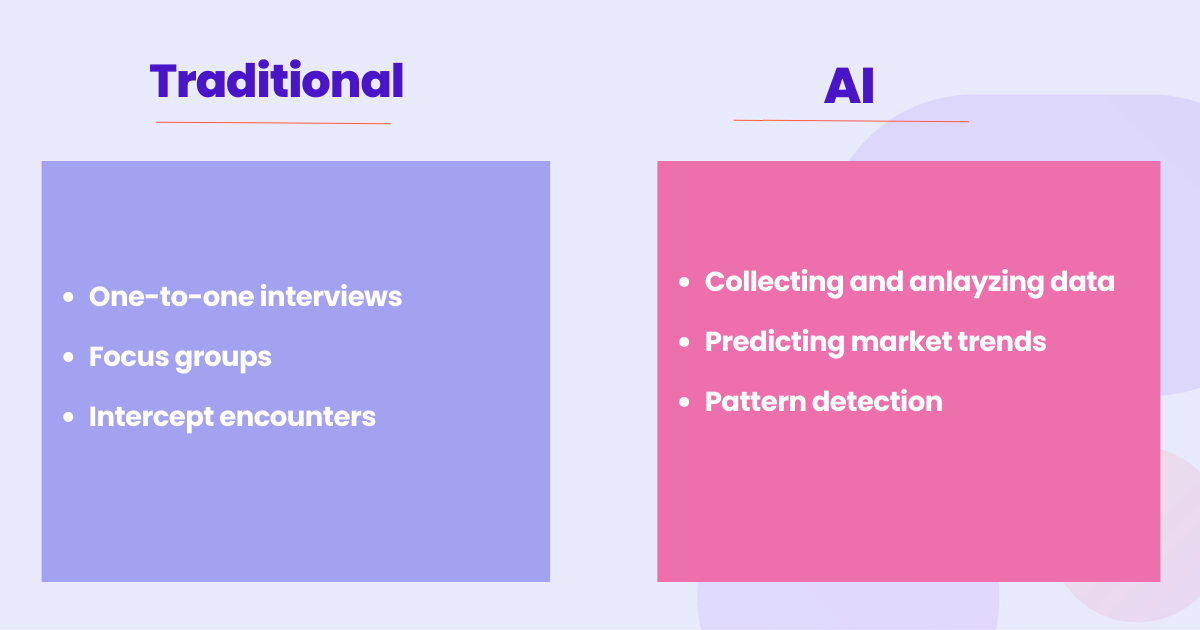
The traditional approaches to market research
The traditional method of market research involved getting out there and speaking to the public, whether that’s through one-to-one interviews, focus groups and intercept encounters.
These methods can still be a fantastic way to gather information from potential customers, but they do have their limitations. They’re costly, time-consuming, and the reality is, users aren’t always 100% honest when quizzed in person. It’s a natural human instinct to want to give the answer that’s most pleasing to the interviewer, and although this can be lovely to hear, it’s not always helpful when you’re looking for accurate data.
The arrival of AI in market research
AI can save you massive amounts of time when collecting and analyzing data. As a SaaS leader, you want to be able to devote most of your time to formulating and spearheading strategy, and AI means you can get to that point a lot faster.
With the arrival of Natural Language Processing (NLP) technology, means that AI has a keen understanding of human intent and this is reflected in the analysise
AI's predictive powers are indispensable for SaaS companies looking to stay ahead of the competition. By sifting through huge amounts of data non-stop, AI can spot emerging trends and forecast market changes with laser-sharp precision.
This foresight allows businesses to stay ahead of the curve, adjusting their marketing strategies proactively and seizing new opportunities as they emerge.

AI's knack for uncovering hidden patterns and connections in data is invaluable. It helps refine product development, pinpoint the right audience segments, and fine-tune marketing campaigns so your product resonates with the right audience.
As AI evolves, its predictive capabilities will continue to shape the future of market research, playing an ever more crucial role in guiding businesses towards success.
The real catch with SaaS startup growth is that your market research has to be thorough, yes, but it also has to be done efficiently, since the market shifts all the time, and you want to be able to act on insights you’ve gathered in good time.
With this in mind, you can easily see why AI is such a gift for SaaS startups who are looking to get started. Now that we’ve dived into the benefit of AI tools for SaaS startups and how SaaS companies can utilize AI to conduct research, let’s dive into the tools available to you.
10 top AI tools for SaaS market research
1.Gong
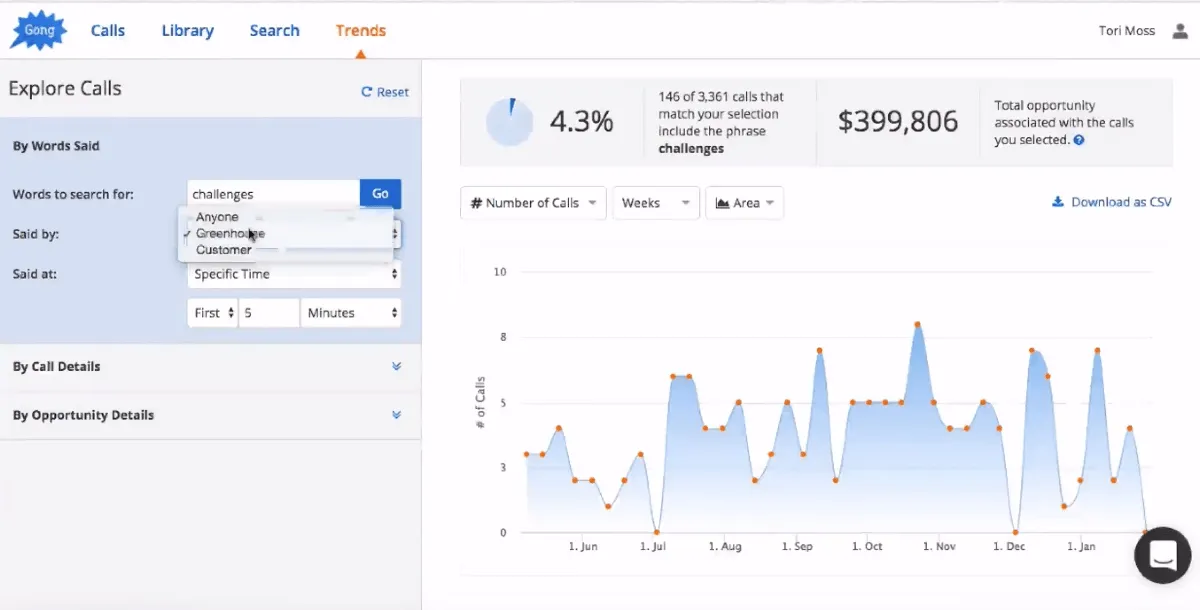
Gong is the go-to tool for sales, marketing, and research teams looking to capture valuable insights from customer or survey calls.
With Gong, calls are automatically transcribed and summarized using AI, providing:
- Contextual insights and discussion points
- Frequently mentioned keywords
- References to meetings and times
- Action items for each participant
- Plus, it supports multiple languages!
Gong is ideal for marketers and researchers conducting multilingual audience interviews. To maximize its benefits, regular planning, scheduling, and call sessions with Gong are necessary.
However, if you're in need of a service that handles research tasks for you, exploring options with top market research firms would be more suitable.
2. ChatGPT

Utilize ChatGPT to gather insightful data on competitors, including paragraphs or bulleted summaries. SaaS founders have to understand competitor strategies to devising new products or marketing campaigns within the same sphere. The goal is not only to exceed what competitors are doing, but to fill the gaps where competitors are failing to deliver a first-class service.
- Market Trends and Insights
- Stay ahead of the curve by tapping into ChatGPT's market trend insights.
- With ChatGPT's assistance, you can create effortlessly tailored emails
Incorporating ChatGPT into your market research toolkit can revolutionize your approach, saving time and resources while enhancing the depth and quality of insights gathered.
3. Speak
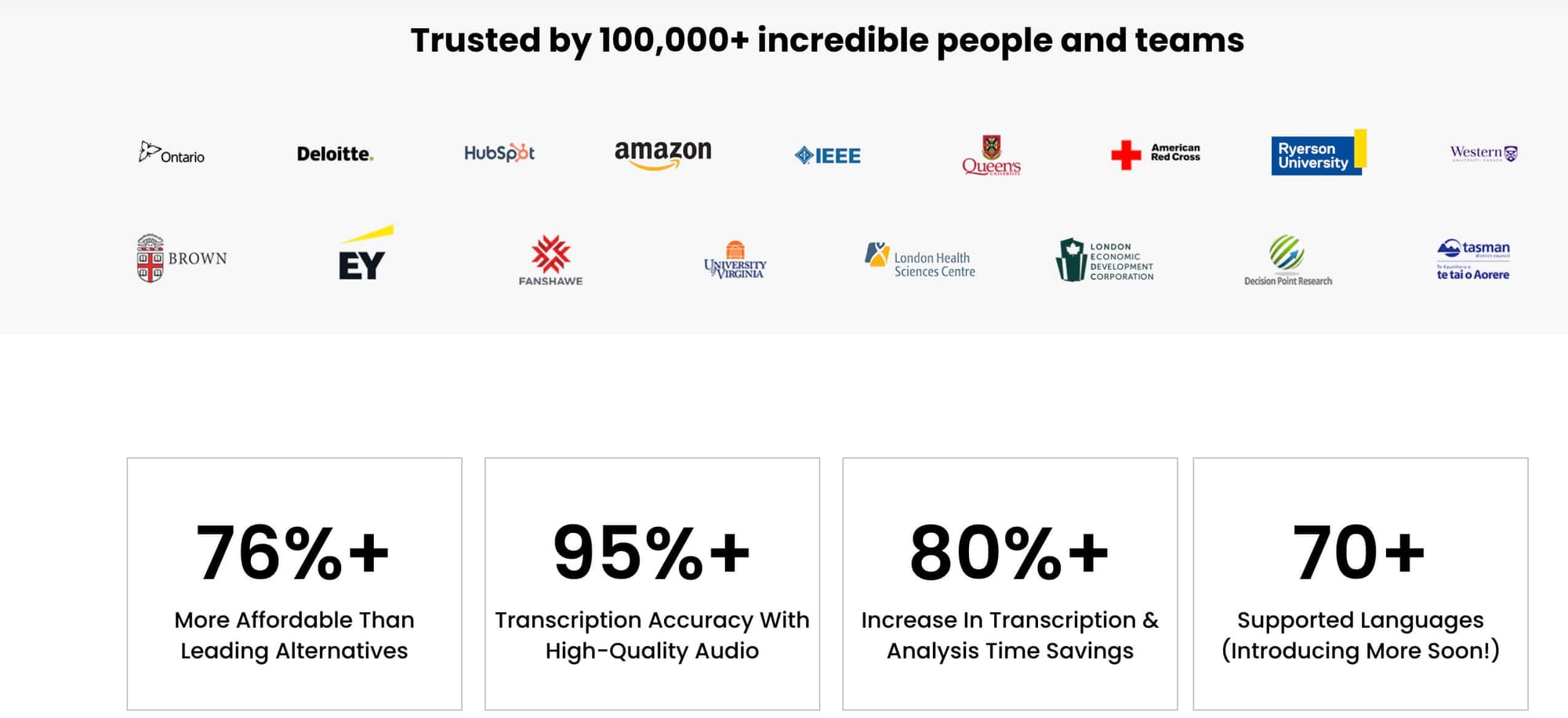
Speak is a versatile platform that employs natural language processing (NLP) to extract actionable insights from various data formats, including video, audio, and text files.
Similar to Gong, Speak offers the following features:
- Automates the recording and transcription of customer interviews
- Users can upload files from any source, including public URLs, for AI-driven data extraction.
- Transforming data points into visualizations
Speak is ideal for those capturing research data across multiple mediums, such as text-based surveys and pre-recorded video responses. It's also suitable for users interested in leveraging AI for data analysis and reporting through interactive prompts, akin to conversing with an AI chatbot.
Speak offers a basic AI transcription service on a pay-as-you-go basis. For full access to its features, including AI interaction, subscription to a monthly plan is required, starting at $29 per month or $278.40 per year.
4. Kompyte
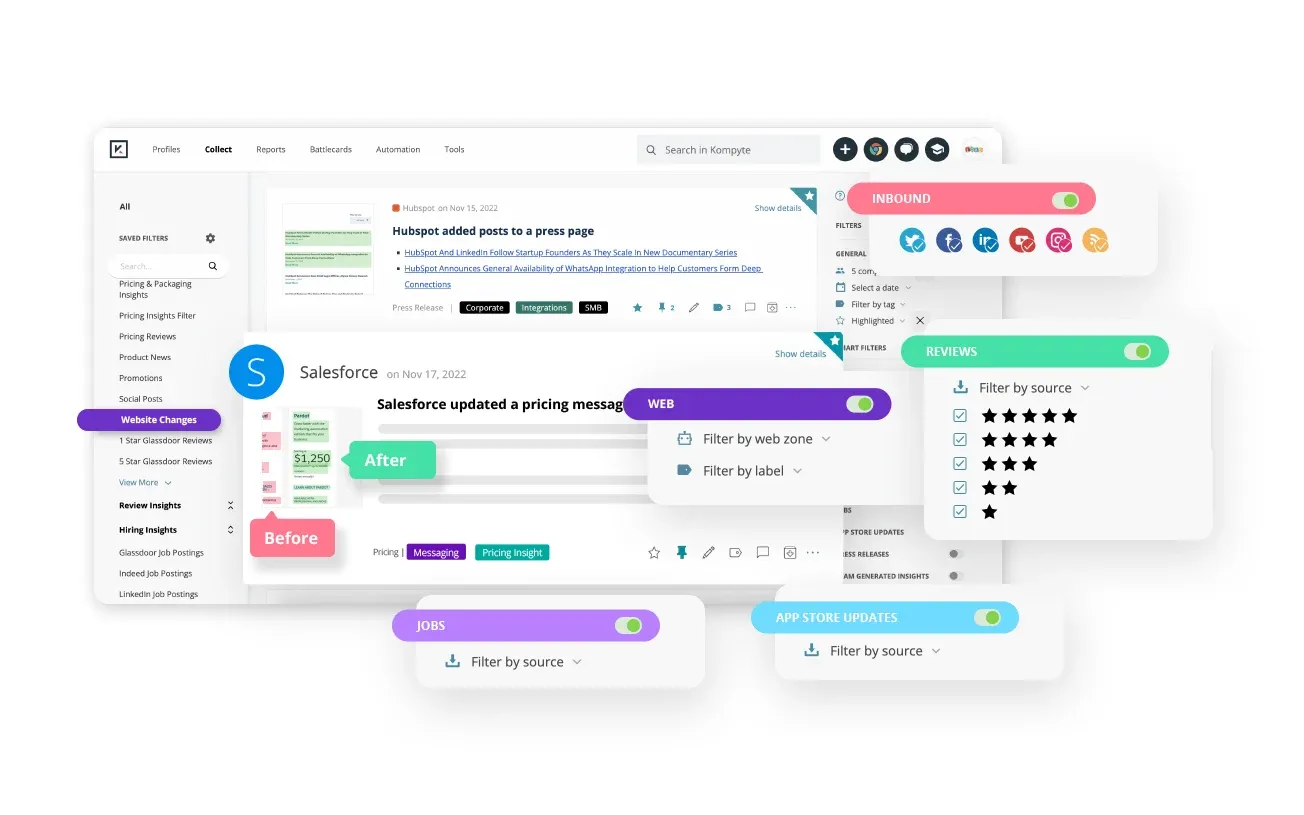
The SaaS industry is booming, and with that there are more competitors than you can deal with. That’s where Kompyte can swoop into the rescue, collating information on all the major players in the game, and zooming in on the main factors to focus in on.
Kompyte, a Semrush tool, simplifies the task of analyzing brand competitors and devising effective strategies to maintain a competitive edge.
Key features include:
- comprehensive win-loss reports
- strategic guidance for sales representatives to tackle objections effectively
- access to a rich knowledge base.
5. Brandwatch

For businesses aiming to monitor and assess their social media presence, as well as that of competitors, Brandwatch isa powerful tool for social listening. Social listening is an essential strategy for SaaS companies looking to investigate customer expectations on the social sphere.
This platform operates by gathering pertinent social media posts, comments, mentions, and discussions, then organizing this feedback into specific topics or sentiments, before employing AI to analyze the findings.
Key Features include:
- AI Analyst
- Image Analysis
- Auto Segmentation
- AI-Powered Search[Insert Brandwatch image here]
6. Remesh

Remesh offers a range of functionalities, with key features including:
- Set up a focus group schedule
- Develop a discussion guide
- Share media with group members
- Formulate questions for participantsP
- Pose open-ended and multiple-choice questions about content
- Facilitate participant voting on agreement with statements made by others in the group
Meanwhile, Remesh's AI algorithm operates in the background, actively analyzing feedback, identifying common themes, and highlighting key insights in real-time as the focus group progresses. If you notice particular consumer behaviors in the findings, you have the flexibility to adapt discussion questions on the fly.
Even better, Remesh facilitates the creation of shareable slide decks and CSV files containing your data once the focus group concludes.
Remesh is particularly advantageous for teams conducting their own focus groups. The embedded AI capabilities provide instant insights into results, eliminating the need to wait until the session concludes for analysis.
7. Poll the people
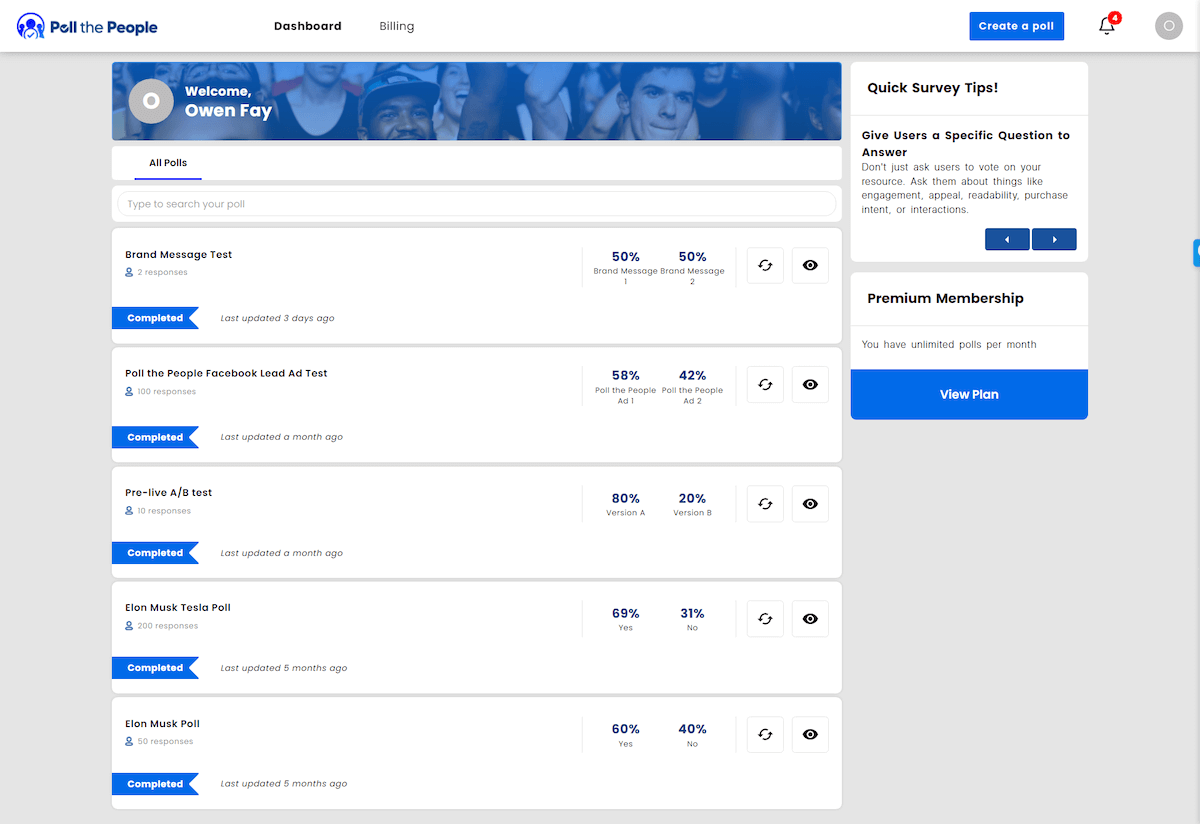
For marketers looking for an innovative approach to creating and conducting market surveys, exploring Poll the People can put you on a winning cousrs . Utilizing OpenAI's ChatGPT technology, this platform empowers users to survey a respondent pool exceeding half a million individuals.
Marketers can leverage Poll the People to gauge ad effectiveness, collect feedback on brand assets such as logos, preview audience reactions to branded content, and more.
- Features include: Easy to use templates
- Responses from respondents in minutes
- Clear explanations from respondents
- Response rejection from spammers or bots
- Generated reports with easily digestible data
8. Lexalytics
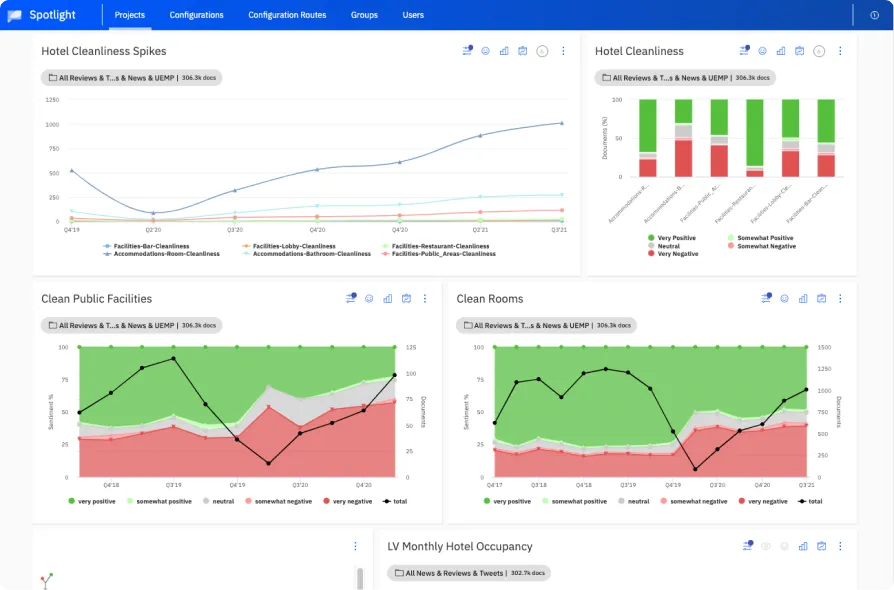
This service leverages NLP to analyze text-based documents and extract various information, including:
- Sentiment and intent
- Names of individuals, locations, dates, products, and companies
- Common themes to categorize related text passages
- Catering to wide range of market research needs
Additionally, Lexalytics offers the flexibility to integrate its technology into custom applications, providing versatility compared to other AI analysis programs.
Lexalytics is well-suited for research teams intending to develop customized survey, panel, or focus group platforms.
9. YouScan
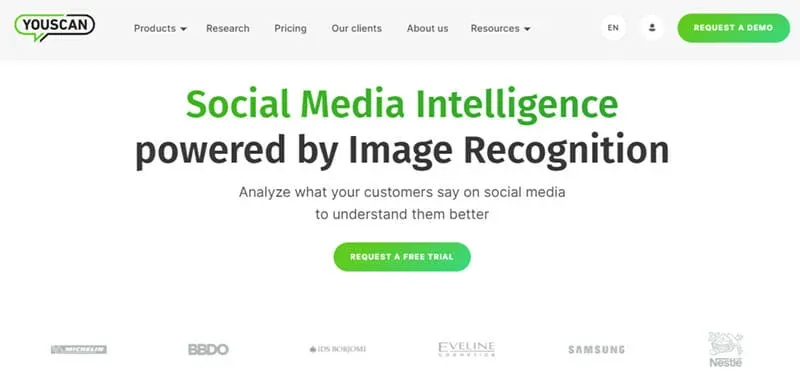
YouScan extracst data from images and text shared on social media platforms such as Instagram. Unlike relying solely on post captions and hashtags, YouScan has the capability to recognize both text and subjects depicted in images.
With YouScan, you can do the following:
- Gauge the frequency of a brand or product's appearance in social media images
- Evaluate the sentiment of social media posts from your target audience
- Compare brands and products co-appearing in users' photos
- Identify the platforms generating discussions or posts related to specific brands
Similar to Poll the People and Claude, YouScan features a chatbot for gathering insights into your data. By posing questions about the desired information, YouScan's AI provides responses.
Companies with a product line highly integrated into social media can leverage YouScan to gain insights into the portrayal and reach of their brand across various social platforms.
10. Crayon
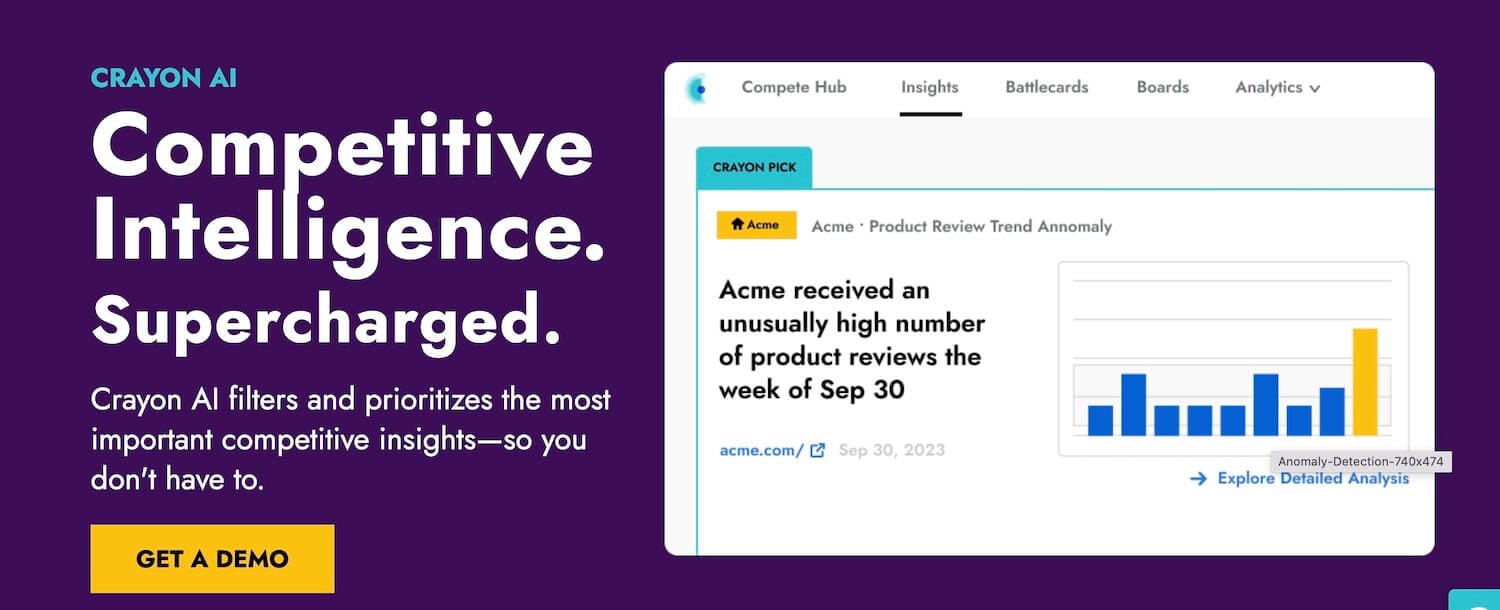
Crayon serves as a market research tool/software platform with a sharp focus on delivering competitive intelligence to its users. Its AI-powered analysis engine sifts through competitor metrics, generating automatic alerts containing relevant information to streamline the efforts of sales and marketing teams.
Key Features include:
- Multi-sourced information
- Sales battlecards
- Integrations: seamless integration with Salesforce, HubSpot, and Slack.
Wrapping up
The sheer amount of preparation and work required to get a SaaS startup off the ground can be pretty overwhelming. But the good news is with the technology available, you can find ways to take the pressure off yourself and start drawing conclusions faster and integrate these insights into your strategy.
Analysis and research is important, but SaaS startup founders are creators first and foremost, so let AI pick up the slack when it comes to the analysis so you can start dreaming up new solutions to delight and excite your customers!



